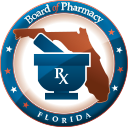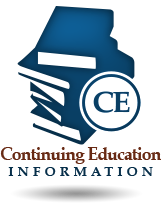SB 66 - Revive Awareness Day
Effective Date: April 8, 2024
SB 66 (Full Text)
Summary:
The bill designates June 6 as “Revive Awareness Day” to raise awareness of opioid overdose dangers and promote the safe use and availability of opioid antagonists like naloxone.
HB 159 - HIV Infection Prevention Drugs
Effective Date: July 1, 2024
HB 159 (Full Text)
Summary:
The bill authorizes certified pharmacists to screen adults for HIV exposure and provide results to such adults, with advice to seek further medical consultation or treatment from a physician. Licensed pharmacists may also dispense preexposure prophylaxis drugs pursuant to a valid prescription.
The bill allows certified pharmacists to order and dispense HIV postexposure prophylaxis drugs under a written collaborative practice agreement with a licensed physician and details specific requirements for these agreements. The bill details the certification process for pharmacists to dispense postexposure drugs, including educational and liability coverage requirements.
The bill requires participating pharmacies to submit an annual access-to-care plan to the Board of Pharmacy and the Department of Health to ensure patients have access to primary care, specifies requirements for access-to-care plans, and authorizes penalties for non-compliance.
HB 197 - Health Care Practitioners and Massage Therapy
Effective Date: July 1, 2024
HB 197 (Full Text)
Summary:
The bill amends quorum requirements for the Board of Massage Therapy to be a majority of current membership and requires the Department of Health (Department) to include specific data on massage therapists and establishments in their annual report.
The bill authorizes the Department to issue an emergency suspension order, suspending the license of massage therapists and establishments upon receipt of information that the therapist, designated establishment managers, or employees have been arrested for their involvement in certain crimes.
The bill also establishes new grounds for emergency suspension that broadly applies to all health care practitioners and requires the Department to issue an emergency order suspending the license of any licensee upon a finding that probable cause exists to believe that the licensee has committed sexual misconduct.
The bill revises definitions relevant to the operation of massage establishments, including “employee,” “designated establishment manager,” “sexual activity,” and “advertising medium.”
The bill amends massage establishment requirements related to sexual activity prohibition, prohibited conduct and devices, window transparency, signage, employee dress code, and the maintenance and display of employee and customer records. The bill specifies advertising requirements for massage therapists and establishments and prohibits advertisements related to prostitution services. The bill also prohibits massage establishments from being used as a principal or temporary domicile, as a shelter or harbor, or be used as sleeping or napping quarters for any person unless the establishment is zoned for residential use under a local ordinance.
The bill requires Department investigators to request valid government identification from all employees while in a massage establishment and requires the Department to notify a federal immigration office if they fail to do so. The bill also specifies the documents operators of massage establishments must provide to Department investigators and law enforcement officers upon request. The bill provides that massage establishments in violation of new regulations are a nuisance, subject to abatement or injunction.
HB 201 - Emergency Refills of Insulin and Insulin-Related Supplies or Equipment
Effective Date: July 1, 2024
HB 201 (Full Text)
Summary:
The bill expands current law on emergency prescription refills by authorizing a pharmacist to dispense an emergency refill of insulin and insulin-related supplies or equipment to treat diabetes up to three nonconsecutive times per calendar year if the pharmacist is unable to readily obtain refill authorization from a prescriber.
SB 322 - Public Records and Meetings
Effective Date: March 21, 2024
SB 322 (Full Text)
Summary:
The bill, which is linked to SB 7016 becoming law, creates public records and public meeting exemptions for the Interstate Medical Licensure Compact, the Audiology and Speech-Language Pathology Interstate Compact, and the Physical Therapy Licensure Compact.
The bill protects from public disclosure the personal identifying information of a physician, audiologist, speech-language pathologist, physical therapist, and physical therapist assistant, other than the individual’s name, licensure status, or license number, obtained from the coordinated licensure system or database under the applicable compact and held by the Department of Health or licensing board, unless the state that originally reported the information to the coordinated system authorizes the disclosure by law.
The bill also creates a public meeting exemption for compact Commission meetings, or portions of such meetings, at which matters specifically exempted from disclosure by federal or state law are discussed. The bill provides that any recordings, minutes, and records generated from such a meeting are also exempt.
The exemptions are subject to the Open Government Sunset Review Act and will stand repealed on October 2, 2029, unless reviewed and reenacted by the Legislature.
SB 330 - Behavioral Health Teaching Hospitals
Effective Date: Except as otherwise expressly provided in the act, this act shall take effect July 1, 2024.
SB 330 (Full Text)
Summary:
The bill, which is part of the Live Healthy initiative, advances Florida’s behavioral health systems of care by creating the designation of Behavioral Health Teaching Hospital (BHTH) for facilities that train mental health service providers, such as psychiatrists, psychologists, psychiatric nurses, social workers and family marriage and family therapists. It creates a new, integrated care and education model that will focus on state-of-the-art behavioral health research and provide leading-edge education and training for Florida’s behavioral health workforce.
The bill defines behavioral health professions including, but not limited to, psychiatrists licensed under Chapters 458 or 459, psychologists licensed under Chapter 490, psychiatric nurses licensed under Chapter 464, and social workers, marriage and family therapists, and mental health counselors licensed under Chapter 491, F.S.
The bill identifies four hospitals to serve as pilots: Tampa General Hospital in collaboration with the University of South Florida, UF Health Shands Hospital, and UF Health Jacksonville in collaboration with the University of Florida and Jackson Memorial Hospital in collaboration with the University of Miami; however, any hospital can apply for the designation. The bill establishes that participating hospitals will collaborate with other university colleges and schools of medicine, nursing, psychology, social work, pharmacy, public health, or other relevant disciplines to promote and enhance a modernized behavioral health system of care. Further, the hospitals shall provide inpatient and outpatient behavioral health care, address system-wide behavioral health needs, and provide treatment and care for those who need long-term voluntary or involuntary civil commitment.
The bill establishes the Florida Center for Behavioral Health Workforce (the Center) within the Louis de la Parte Florida Mental Health Institute at the University of South Florida to produce research and policy analysis and create best practices for the training of mental health professionals and appropriates $5 million for this purpose. All health care regulatory boards are required to, upon request, provide the Center with specified information regarding licensed behavioral health professionals.
SB 548 - Public Records/ Military Personnel and their Spouses and their Dependents
Effective Date: April 26, 2024
SB 548 (Full Text)
Summary:
The bill creates an exemption from public records requirements for identification and location information of current and former military personnel and their families and states the exemption applies retroactively.
The bill specifies “military personnel” as those employed by the U.S. Department of Defense with access to “secret” or “top secret” information or members of special operations forces.
For this exemption to apply, the bill requires military personnel to submit a written request to an agency holding such information and a statement of efforts to protect their information from public access.
The exemption is subject to the Open Government Sunset Review Act and will stand repealed on October 2, 2029, unless reviewed and reenacted by the Legislature.
HB 855 - Dental Services
Effective Date: July 1, 2024
HB 855 (Full Text)
Summary:
The bill revises existing standards for the practice of dentistry to include a definition for digital scanning and establishes new requirements that specifically apply to providers using telehealth to provide dental services to patients.
The bill requires any partnership, corporation, or other business entity that advertises dental services to designate a dentist of record with the Board of Dentistry. The bill also requires every dentist to provide each patient with the dentist’s name, contact telephone number, after-hours contact information for emergencies, and license information. The bill provides that failure to do so constitutes grounds for discipline.
The bill requires advertisements for certain dental services provided through telehealth to include a disclaimer.
The bill establishes the requirement that a dentist perform an in-person examination of a patient, or review records of an in-person examination of the patient performed within the last 12 months, before making an initial diagnosis and correction of a malposition of teeth or the initial use of an orthodontic appliance. Further, the bill provides that failing to adhere to this requirement constitutes grounds for discipline.
HB 883 - Short-Acting Bronchodilator Use in Public and Private Schools
Effective Date: July 1, 2024
HB 883 (Full Text)
Summary:
The bill amends Florida Statutes to authorize public and private school students with asthma to carry and use short-acting bronchodilators and their components and allows public and private schools to acquire, stock, and administer these medications under specific protocols. The bill defines terms related to asthma, short-acting bronchodilators, and their administration.
The bill permits authorized health care practitioners to prescribe short-acting bronchodilators and components in the name of a public or private school for use under this act, authorizes licensed pharmacists to dispense short-acting bronchodilators and components pursuant to a prescription issued in the name of a public or private school, exempts a dispensing health care practitioner or pharmacists from disciplinary action under any professional licensure statute or rule, and provides immunity from civil or criminal liability for school personnel and health care practitioners involved in prescribing or administering these medications in accordance with the act.
The bill authorizes schools to acquire and maintain a stock of short-acting bronchodilators and components for emergency use and requires schools to adopt protocols for the administration of short-acting bronchodilators to students, developed by a licensed physician. The bill requires schools to notify parents about the adopted protocols and obtain prior permission to administer these medications to their children. The bill allows trained school personnel to administer short-acting bronchodilators to students in respiratory distress, with or without a prior asthma diagnosis or prescription.
SB 892 - Dental Insurance Claims
Effective Date: January 1, 2025
SB 892 (Full Text)
Summary:
The bill prohibits dental insurance contracts from specifying credit card payments as the only method of payment to dentists and requires health insurers and prepaid limited health service organizations to obtain dentist consent before paying claims via electronic funds transfer (EFT), including virtual credit card payments.
The bill provides that dentist consent covers the entire practice and bears the dentist’s signature, which may include electronic or digital signatures, and prohibits charging a fee for ACH transfer payments to dentists unless consent is obtained.
The bill establishes that health insurers and organizations cannot deny claims for procedures included in a prior authorization, with specified exceptions.
The bill establishes that these provisions apply to contracts delivered, issued, or renewed on or after January 1, 2025, and authorizes the Office of Insurance Regulation to enforce these provisions and the commission to adopt implementing rules.
HB 935 - Home Health Care Services
Effective Date: July 1, 2024
HB 935 (Full Text)
Summary:
The bill expands eligibility for ordering Medicaid home health services to include advanced practice registered nurses (APRNs) and physician assistants (PAs).
The bill allows Medicaid to pay for home health services ordered by an APRN or a PA who is not employed, under contract with, or otherwise affiliated with the home health agency rendering the services. The APRN or PA must have examined the recipient within the 30 days preceding the request for home health services. When ordering home health services, the APRN or PA must also include their national provider identifier, Medicaid identification number, or medical practitioner license number on the written prescription for the services. The APRN or PA must also include such information on all claims for home health reimbursement and prior authorization requests.
SB 938 - Dentistry
Effective Date: July 1, 2024
SB 938 (Full Text)
Summary:
The bill codifies the Board of Dentistry’s (Board’s) role in administering the licensure examination.
The bill revises requirements for dentist licensure in Florida, including examination and continuing education alterations by:
- Deleting language requiring dental students who have completed the coursework necessary to prepare to pass the American Dental License Examination (ADEX) to wait until their final year of dental school to apply for licensure;
- Deleting language relating to ADEX scores for applicants only being valid for 365 days after the date the official examination results are published;
- Amends the required documentation of prior full-time practice required by an out-of-state licensed dentist applying for licensure in Florida. The bill also authorizes the Board to excuse applicants from the 1,200-hour requirement in the event of hardship, as determined by the Board.
- Deletes the requirement that out-of-state licensed dentists applying for Florida licensure who apply for and receive a Florida license, must engage in the full-time practice of dentistry inside the geographic boundaries of the state for one year after licensure, and deletes the provisions related to compliance and enforcement of this requirement.
- Clarifies continuing education content relating to practice management by allowing the course to include one or more of the specified subject areas.
HB 975 - Background Screening Requirements for Health Care Practitioners
Effective Date: July 1, 2025
HB 975 (Full Text)
Summary:
The bill establishes background screening requirements for various health care professions, amending section 456.0135(1), F.S., to include the non-screened health care practitioners cited in Chapters 462, 463, 465, 466, 467, 468 (part I, part II, part III, part V, part X or part XIV), 478, 483, 484, 486, 490, and 491, F.S. This requires all health care practitioners, including those who are not currently screened, to submit fingerprints. However, it does not include the professions cited in sections 401.27 (emergency medical technicians and paramedics), 465.013, and 465.014, F.S. (pharmacy interns and registered pharmacy technicians), or Chapter 468 part IV, F.S. (radiologic technicians).
The bill requires that, effective July 1, 2025, criminal background checks conducted for all health care practitioners must include fingerprint screening by the Florida Department of Law Enforcement, for both prospective licensure applicants and practitioners licensed before July 1, 2025, when they next renew their licenses after that date.
The bill requires all existing licensees as of July 1, 2025, who were not screened through a state and federal (Level 2) review to comply with the background screening requirements established in section 456.0135, F.S., by their next licensure renewal that takes place on or after July 1, 2025. The bill prohibits the Department of Health from renewing the license of such a health care practitioner after July 1, 2025, until he or she complies with these background screening requirements.
The bill adds eight new offenses to the statutory list of offenses outlined in section 435.04, F.S., that can disqualify a person from employment in certain regulated professions if he or she has been the subject of certain legal actions regarding such offenses.
HB 1063 - Practice of Chiropractic Medicine
Effective Date: June 26, 2024
HB 1063 (Full Text)
Summary:
The bill authorizes chiropractic physicians to adjust, manipulate, or treat the human body through the use of monofilament intramuscular stimulation, also known as dry needling, for the treatment of trigger points or myofascial pain. To perform dry needling, chiropractic physicians must first complete a 40-hour certification course approved by the Board of Chiropractic Medicine (Board) and be certified by the Board. The bill requires the Board to establish minimum practice standards for chiropractic physicians performing dry needling, including specific education and training requirements, restrictions, and patient consent protocols.
The bill specifies that dry needling cannot be delegated to any person other than a chiropractic physician who is authorized to engage in dry needling under Chapter 460, F.S.
The bill creates a licensure pathway for chiropractic physicians who obtained their bachelor’s degree at a non-U.S. educational institution of higher education by updating licensure education requirements to allow for the acceptance of credential evaluation reports from approved organizations as proof of education equivalent to a bachelor’s degree.
SB 1512 - Controlled Substances
Effective Date: July 1, 2024
SB 1512 (Full Text)
Summary:
The bill adds tianeptine to the list of Schedule I controlled substances.
HB 1561 - Office Surgeries
Effective Date: May 10, 2024
SB 1561 (Full Text)
Summary:
The bill requires physician offices where gluteal fat grafting procedures are performed to establish financial responsibility through one of the following methods:
- Secure and maintain professional liability coverage in an amount not less than $250,000 per claim, with a minimum annual aggregate of not less than $750,000. The coverage cannot be used for litigation costs or attorney’s fees for the defense of any medical malpractice claim.
- Obtain and maintain an unexpired, irrevocable letter of credit of not less than $250,000 per claim, with a maximum aggregate credit availability of not less than $750,000, which may not be used for costs or attorney fees from the defense of any medical malpractice litigation.
The bill amends the standards of practice by expressly prohibiting a physician from performing a liposuction procedure where more than 1,000 cc of supernatant fat is temporarily or permanently removed, a Level II office surgery, or Level III office surgery procedure in any setting other than a registered office surgery setting or a facility licensed under Chapters 390 or 395, F.S. The bill revises the fine for violating this prohibition from $5,000 a day to $5,000 per incident.
SB 1582 - Department of Health
Effective Date: July 1, 2024
SB 1582 (Full Text)
Summary:
The bill revises the requirements and protocols related to health screenings and research within the state’s health care infrastructure. The bill:
- Clarifies the responsibility for providing newborn screenings and the submission of newborn screening specimen cards.
- Specifies blood specimen collection requirements for newborn screenings.
- Revises the definition of “health care practitioner” to include licensed genetic counselors thereby adding genetic counselors to the list of health care practitioners who may receive state lab results. Revises hearing loss screening requirements to include infants and toddlers.
- Modifies sickle cell disease and trait screening requirements, notifications, and registry processes including opt-out provisions for parents or guardians.
- Defines “environmental health technician,” establishes the environmental health technician’s certification, mandates certification standards, and provides certification requirement exemptions under specified conditions.
- Creates the Andrew John Anderson Pediatric Rare Disease Grant Program to award competitive grants for scientific and clinical research related to pediatric rare diseases.
- Allows additional time to cure application deficiencies for medical marijuana treatment center license applicants and stipulates license issuance processes upon successful cure or post-applicant death.
- Implements environmental risk screenings for pregnant women and infants to address issues such as low income and substance use disorder, with opt-out provisions.
- Amends the membership and quorum requirements for the Florida Cancer Control and Research Advisory Council.
SB 1600 - Interstate Mobility
Effective Date: July 1, 2024
SB 1600 (Full Text)
Summary:
The bill creates the “Mobile Opportunity by Interstate Licensure Endorsement Act” (MOBILE Act) within Chapter 456, F.S., which establishes a new universal process for licensure by endorsement for health care professions regulated by the Florida Department of Health’s (the Department’s) Division of Medical Quality Assurance. To qualify, the health care practitioner must meet specific criteria, including various testing, training, and experience qualifications for their profession. The bill also repeals existing licensure by endorsement statutes from various individual practice acts.
The bill establishes criteria under which health care practitioners can be licensed by endorsement.
The bill mandates that applicants comply with the required fingerprint-based criminal history checks for professional licenses, outlines grounds for ineligibility for licensure under this act, such as pending disciplinary proceedings or criminal convictions related to the health care profession, and directs the Department to utilize the National Practitioner Data Bank for verifying applicant credentials.
Each applicable board, or the Department if there is no board, shall adopt rules incorporating application forms for the MOBILE Act licensure pathway within six months after its effective date.
The bill amends current law for licensure by endorsement in various practice acts to conform to the provisions of the MOBILE Act. The bill does not alter current law relating to licensure by endorsement for radiologist assistants, radiologic technologists, or respiratory therapists.
The bill provides that, notwithstanding the changes made to the Florida Statutes by the MOBILE Act, a board or the Department, as applicable, may continue processing applications for licensure by endorsement as authorized under the Florida Statutes (2023) until the rules adopted by such board or the Department to implement the changes made by the MOBILE Act take effect or until six months after the bill’s effective date, whichever occurs first.
The bill requires the Department to submit an annual report to the Governor, the President of the Senate, and the Speaker of the House of Representatives which details, by profession, the number of applications received, licenses issued, denials, complaints received, and disciplinary actions taken against health care practitioners licensed under the MOBILE Act.
HB 7005 - OGSR/Financial Disclosure
Effective Date: October 1, 2024
HB 7005 (Full Text)
Summary:
The bill removes the scheduled repeal of exemptions from public records requirements for secure login credentials held by the Commission on Ethics and certain information entered into the electronic filing system for financial disclosure.
SB 7016 - Health Care
Effective Date: March 21, 2024
SB 7016 (Full Text)
Summary:
The bill aims to grow Florida’s health care workforce by establishing various health care-related programs and initiatives, removing regulations to increase workforce mobility, and expanding access to quality, efficient health care. Specifically, the bill:
- Expands Florida Reimbursement Assistance for Medical and Dental Education: The bill updates and expands the Dental Student Loan Repayment (DSLR) Program and the Florida Reimbursement Assistance for Medical Education (FRAME) Program by allowing mental health professionals, dental hygienists, and private dental practices in areas where there are shortages of practitioners serving Medicaid patients to qualify, increasing loan repayment award amounts for all qualifying health care professionals, and requiring 25 hours of volunteer health services per year to qualify. The bill requires the Department of Health (Department) to provide an annual report detailing loan repayment through both the DSLR and FRAME programs to the Governor and the Legislature through July 1, 2034. The Department is also required to facilitate a study evaluating the impact of student loan repayment programs on health care provider shortages and to submit the study’s results to Governor and the Legislature by January 1, 2023.
- Expands the Areas of Critical Need Program: The bill allows Advanced Practice Registered Nurses and Physician Assistants to be issued temporary certificates to practice in these underserved areas, as is currently allowed for physicians.
Establishes Limited Licensure for Graduate Assistant Physicians: The bill creates a new limited license as a graduate assistant physician (GAP) for medical school graduates who have passed their exams but have not yet been matched into a residency program. - Revises Regulations for Autonomous Nurse Midwives: The bill amends requirements for certified autonomous nurse midwives by replacing the requirement for a transfer agreement with a requirement to maintain a written policy for the transfer of patients who need a higher level of care or emergency services and includes rulemaking authority and monitoring provisions.
- Licensure Compacts: The bill provides that Florida will enter into the Interstate Medical Licensure Compact, the Audiology and Speech-Language Pathology Interstate Compact, and the Physical Therapy Licensure Compact.
- Reduces Barriers for Psychologists/Psychiatric Nurses to Work in Baker Act Facilities: The bill reduces and repeals post-licensure clinical requirements for clinical psychologists and psychiatric nurses to work in Baker Act facilities, includes a three-year clinical experience requirement for more advanced acts performed by a clinical psychologist, and requires a psychiatric nurse to practice within an established protocol.
- Expands Access to Free and Charitable Clinics: The bill increases the eligibility threshold to 300% of the federal poverty level, allowing more low-income Floridians access to care.
- Creates a Health Screening and Practitioner Volunteer Portal and Grant Program: The bill establishes a health screening portal online where information on low or no-cost health screening opportunities and information for health care practitioners on volunteer opportunities related to such health screenings can be found. The bill also creates a Health Screening Grant Program to support nonprofit entities that are providing no-cost screenings and health services.
- Creates Advanced Birth Center Designation: The bill allows a licensed birth center to be designated as an advanced birth center (ABC). The ABC must operate continuously, employ two medical directors (an obstetrician and an anesthesiologist), serve Medicaid recipients, and have a formal arrangement with a nearby hospital in case of an emergency.
- Requires ER Diversion Partnerships and Care Coordination: The bill encourages the creation of partnerships between hospitals and primary care settings to improve coordination and encourage patients to establish a medical home to prevent future emergency department visits for non-urgent care by requiring all hospitals with emergency departments to create a plan for helping patients access appropriate care settings when those patients come to the emergency room with a non-emergent condition or indicate they lack regular access to primary care.
The bill removes the sunset date from the Florida Center for Nursing’s (FCN) duty to submit an annual report to the Governor, the President of the Senate, and the Speaker of the House of Representatives. The required report contains FCN’s analysis of nursing education programs and Florida’s nurse supply to determine if there was an increase in their availability and ability to produce quality nurses.
The bill expands eligibility for Linking Industry to Nursing Education (LINE) Funding to high-performing independent schools, colleges, or universities that meet performance metrics.
The bill creates the Training, Education, and Clinicals in Health (TEACH) Funding Program to offset lost revenue while clinical preceptors are mentoring medical, dental, nursing, and behavioral health students. The program seeks to increase the availability of clinical opportunities, improve the quality of the training sites, and promote the clinical training that prepares students for work as health care professionals.
The bill expands graduate medical education residency slots to increase the number of physicians in Florida.
The bill expands opportunities for experienced foreign-trained physicians to seek licensure in Florida.
The bill directs the Agency for Health Care Administration (AHCA) to seek federal approval to include hospital at home as a reimbursable service in Medicaid, so Floridians on Medicaid can receive hospital care at home, if appropriate.
The bill expands the Telehealth Minority Maternity Care Program statewide by expanding the capacity for positive maternal health outcomes. The program may enlist county health departments to assist with program implementation and requires annual reporting by the Department to the Governor and the Legislature on program effectiveness.
Aggregate data on the maternal and infant health outcomes of program participants. The bill enhances and expands mobile response teams to ensure coverage in every county.
SB 7018 - Health Care Innovation
Effective Date: March 21, 2024
SB 7018 (Full Text)
Summary:
The bill creates the Health Care Innovation Council (the Council) within the Department of Health to convene health care experts for the purpose of exploring innovations in technology, workforce, and health care delivery models. The bill tasks the Council with developing best practice recommendations and submitting annual reports to the Governor and the Legislature, among other responsibilities.
The bill also creates a revolving loan program for the implementation of innovative solutions. The Council will review applications and recommend prioritized lists of funding applications. Applicants may be certain licensed providers, with priority for rural hospitals or nonprofits that accept Medicaid patients in rural or medically underserved areas.
HB 7021 - Mental Health and Substance Abuse
Effective Date: July 1, 2024
HB 7021 (Full Text)
Summary:
The bill amends Florida’s mental health and substance abuse laws to enhance services, clarify definitions, and update procedures by revising standards for involuntary mental health treatment service, broadening the definition of licensed medical practitioners qualified to provide care, and refining the responsibilities of county courts.
The bill revises written notice requirements relating to filing petitions for involuntary services. The bill amends the requirements relating to voluntary admissions to a facility for examination and treatment, ordering person for involuntary services and treatment, petitions for involuntary service, appointment of counsel, and continuances of hearings. The bill revises actions that constitute unlawful activities relating to assessment and treatment and court actions relating to involuntary assessments.
The bill removes limitations on advanced practice registered nurses (APRNs) and physician assistants (PAs) serving the physical health needs of individuals receiving psychiatric care and authorizes psychiatric nurses to release a patient from a receiving facility when certain criteria are met.
HB 7063 - Anti-Human Trafficking
Effective Date: July 1, 2024
HB 7063 (Full Text)
Summary:
The bill revises provisions related to human trafficking awareness and reporting.
- Updates the hotline number on human trafficking awareness signs to the Florida Human Trafficking Hotline, 1-855-FLA-SAFE.
- Extends the repeal date of the direct-support organization for the Statewide Council on Human Trafficking to October 1, 2029.
- Requires contractors with governmental entities to attest they do not use human trafficked labor.
- Imposes a $2,000 per day fine on public lodging establishments not in compliance with human trafficking awareness requirements.
- Defines “governmental entity” for the purpose of contract affidavits concerning the non-use of human trafficked labor.
If you’d like to view all 2024 bills impacting health care professions, please go to www.flhealthsource.gov/2024-bills.





